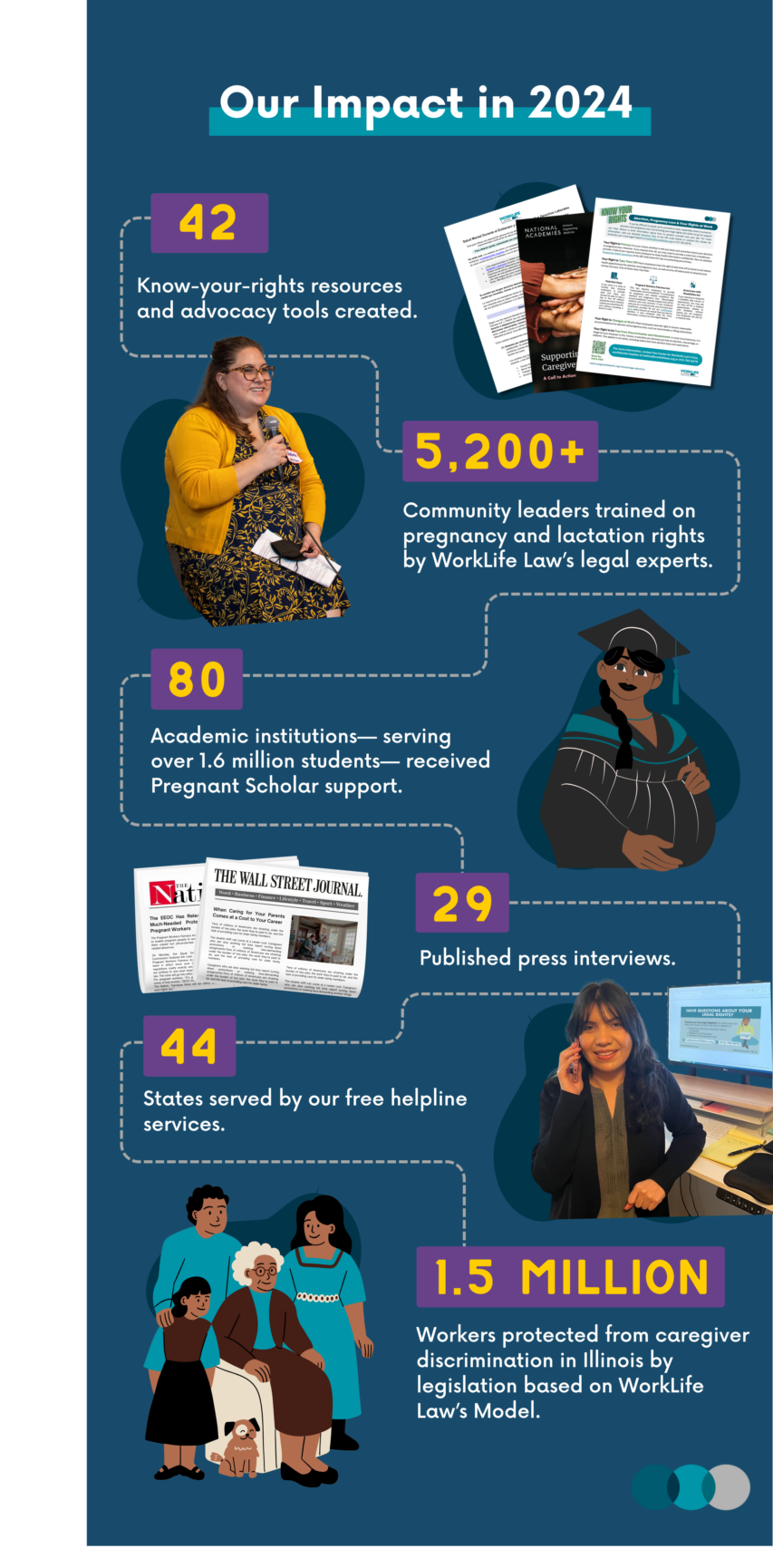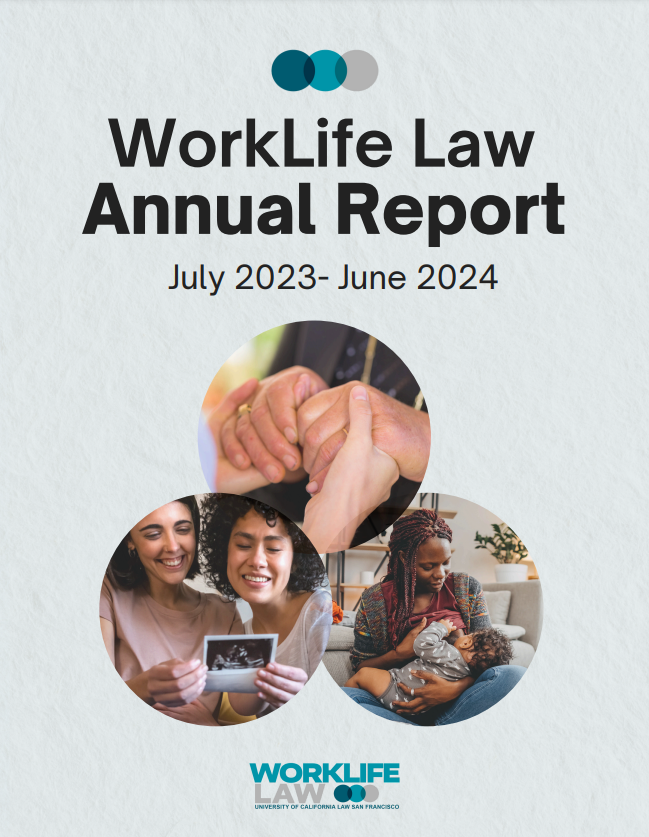
 Mission
Mission
The Center for WorkLife Law is a national advocacy and research organization that advances gender and racial equity by strengthening legal rights for pregnant people and family caregivers. Our work seeks to ensure all people have the freedom to build and maintain economic security through employment and educational opportunities, without having to sacrifice their health or their loved ones’ care.
Model of Change
As an advocacy and research center affiliated with the University of California College of the Law, San Francisco, WorkLife Law uses three strategies to advance its mission: 1) promoting structural policy change at the state and national levels through innovative research, thought leadership, and grassroots partnerships; 2) offering direct assistance to workers and students facing discrimination; and 3) providing technical support to litigators and public agencies to expand legal rights for pregnant, postpartum, and caregiving students and workers.
“WorkLife Law is a force of nature.” – Jocelyn Samuels, Former EEOC Vice Chair
“We simply cannot realize reproductive justice without the work of WorkLife Law.” – Liz Ling, If/When/How Senior Helpline Counsel
“WorkLife Law is a tremendous resource for data and expertise on [family responsibilities discrimination].” – United States Legislator
25 Years of Impact
For over 25 years, the Center for WorkLife Law has been a leading voice for economic justice and gender equity. Founded in 1998 by Joan C. Williams at American University and now affiliated with the University of California, College of the Law, San Francisco, WorkLife Law has transformed the landscape for caregivers and pregnant people in employment and education through groundbreaking advocacy, research, and legal work. Learn more.
Annual Report
 Learn how our work makes meaningful change in the lives of pregnant people and family caregivers across the country in our latest Annual Report.
Learn how our work makes meaningful change in the lives of pregnant people and family caregivers across the country in our latest Annual Report.